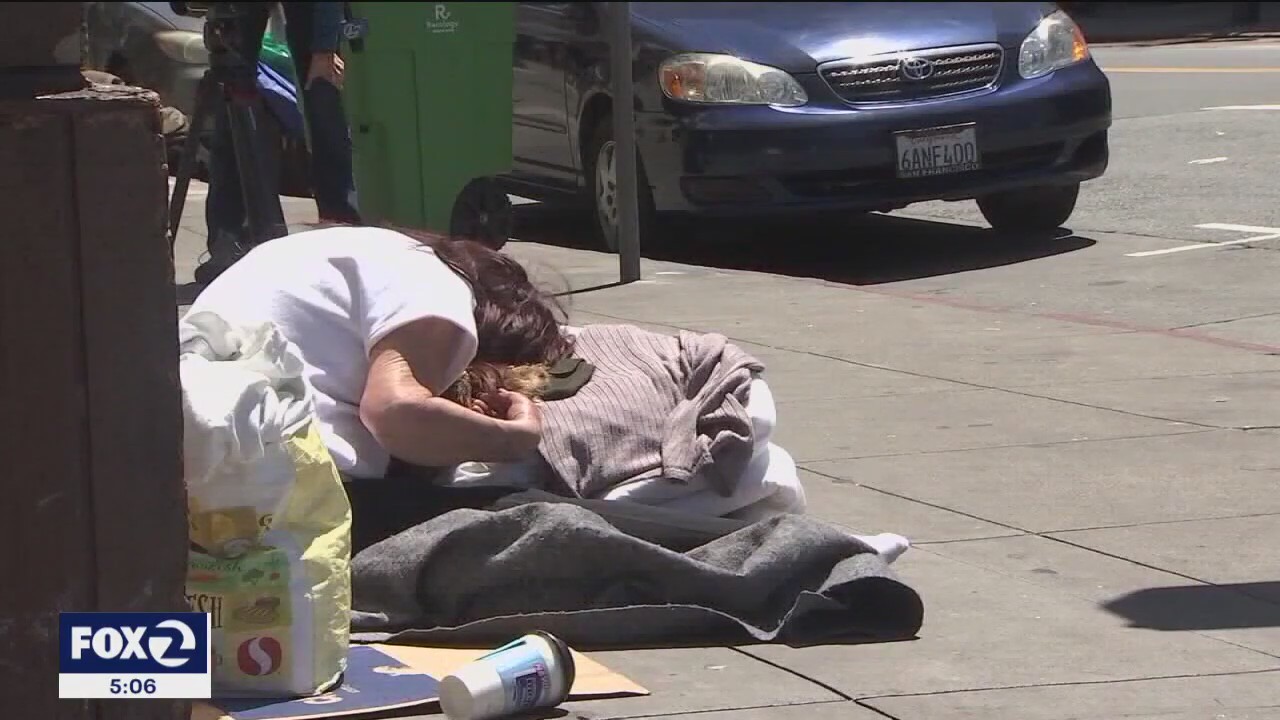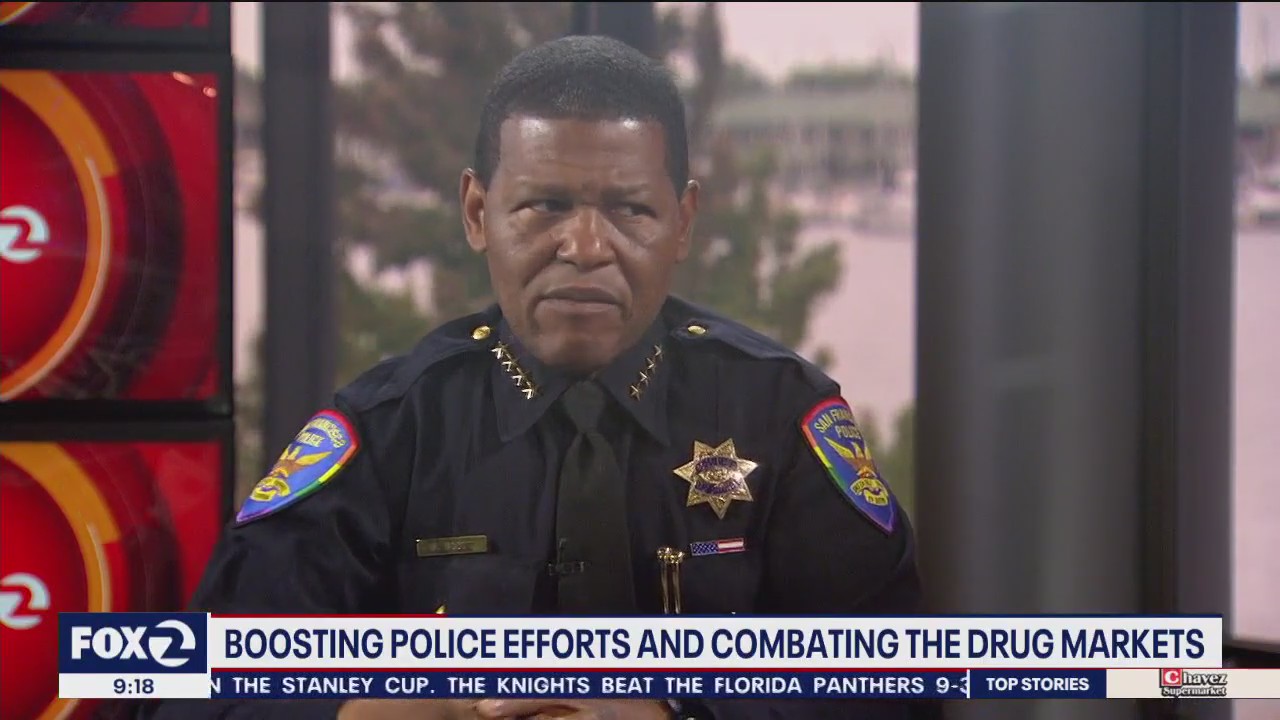CHP seizes enough fentanyl in San Francisco to kill 2.1 million people

CHP seizes enough fentanyl in San Francisco to kill 2.1 million people
Gov. Gavin Newsom announced on Thursday that police have seized enough fentanyl in the last six weeks to kill 2.1 million people — more than double the population of San Francisco.
SAN FRANCISCO - Gov. Gavin Newsom announced on Thursday that police have seized enough fentanyl in the last six weeks to kill 2.1 million people — more than double the population of San Francisco.
Since May 1, the California Highway Patrol seized more than 4.2 kilos of fentanyl in the Tenderloin and the immediate surrounding area of San Francisco.
According to the Drug Enforcement Administration, a lethal dose of fentanyl is 2 milligrams.
In the first six weeks of the operation, the CHP seized over 957 grams of methamphetamine, 319 grams of cocaine, and 31 grams of heroin and made 92 felony and misdemeanor arrests — including on charges related to possession of fentanyl, illegal firearm possession, driving under the influence, and domestic violence, the Newsom administration announced.
"Those officers, have arrested, as of [Wednesday], 41 people," said San Francisco Police Department Chief Bill Scott. "But, here's the statistic that may not be surprising; very few of those people are from the city of San Francisco. Only, as of yesterday, three or four."
Newsom also acknowledged the arrests and seizures in a statement.
"I’m proud of the CHP and Cal Guard’s lifesaving efforts to shut down the Tenderloin’s poison pipeline and hold drug traffickers accountable… These early results show promise and serve as a call to action: we must do more to clean up San Francisco’s streets, help those struggling with substance use, and eradicate fentanyl from our neighborhoods," said Newsom.
Newsom's announcement did not elaborate on how the fentanyl was confiscated or whether anyone was arrested for using or selling the drug.
He did tout, however, the help the CHP got from other agencies in seizing the deadly opioid.

San Francisco police chief tries to combat drug markets
San Francisco Police Chief Bill Scott discusses the arrests of people at drug markets.
Matt Dorsey, the supervisor for the city's South of Market neighborhood, says details like that seem to show that the city has become a sort of drug destination and that the answer to a problem as complex as the city's drug crisis isn't as simple as simply arresting people.
"I think law enforcement has a role to play. I think public health has a role to play, and I think in a city like San Francisco, where we have to make sure that if we're making arrests we're also not just putting them in jail," said Dorsey. "We should make sure we're getting them access to services."
Lydia Bransten is the executive director of The Gubbio Project, aimed at creating a safe space for those experiencing homelessness.
She said, post COVID, San Francisco seems to be in a kind of compassion fatigue, leading to frustration and a larger police presence on the streets to address homelessness, mental health issues and drug and alcohol dependency.
Bransten says there may be a place for law enforcement in trying to resolve homelessness and the drug and alcohol dependency crisis. But, what's not happening she says, is the necessary step for wrap-around services for those who are arrested to make sure they can truly pursue a path to sobriety.
"Over the 50 years that law enforcement has tried to change conditions on the streets with people who use drugs is, it doesn't work," said Bransten. "It doesn't get people off of drugs. It may get people off the streets for a moment. But, it is not actually a continuum of care that works to get people the treatment that they need."
Featured
'Another white man:' San Francisco mayor, supervisor spar over drug arrest plan
There's plenty of disagreement over San Francisco's new concerted policy of detaining drug users to get them into treatment. The mayor and a supervisor really got into it.
Cal Guard is mapping out crime syndicate networks, and the Alcoholic Beverage Control (ABC) is developing a plan to deploy additional resources to address issues of blight in the Tenderloin – including loitering and graffiti – surrounding liquor stores, gas stations, and markets that hold ABC licenses.
As another example, Caltrans is increasing its graffiti abatement efforts, improving and replacing signage, and increasing maintenance and beautification measures in high-traffic corridors.
Meanwhile, in San Francisco this month, Mayor London Breed began directing police and sheriff's deputies to arrest drug users, hoping they will detox and get treatment. Police are drawing heavy criticism from those who believe that these types of punitive measures cause more harm than good.
KTVU reporter Christien Kafton contributed to this report.


